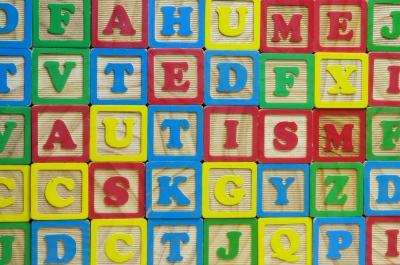Autism diagnoses have gone up a lot in the last generation. It was to the 2000s what ADD diagnoses were to the 1990s.
And so people have rushed to attribute blame. Vaccines, GMOs, even BPA. If someone is selling alternative medicine, food or culture they have found a way to link their competition to autism. And then there is the idea that it is simply better diagnoses. And the charge that it has been over-diagnosed.
New diagnosis guidelines by the American Psychiatric Association (APA) have therapists and some families in a panic, because in an effort to be more scientific and less subjectively symptom-based, the new guidelines could leave them without a diagnosis. No diagnosis means no insurance coverage.
Writing in the Journal of Autism and Developmental Disorders, a team of scholars led by Kristine M. Kulage, MA, MPH, director of the Office of Scholarship and Research Development at Columbia Nursing, say they conducted a literature review and meta-analysis to determine the effect of changes to the Diagnostic and Statistical Manual of Mental Disorders (DSM-5), the APA's classification tool for psychiatric conditions, on diagnosis of individuals with ASD. They found a statistically significant decrease in ASD diagnosis of 31 percent using DSM-5, compared with the number of cases of ASD that DSM-IV-TR would have claimed.
So a child who was autistic under DSM-IV might not be autistic under DSM-5? Yes, they say. There is a reason the National Institute of Mental Health is not going to use DSM as anything more than a glossary of terms and it's because there is little rhyme or reason for why they persist in symptom-based diagnosis 50 years after medicine knew better. For severe conditions it is still considered valid but ASD was too large a spectrum under DSM-IV and the effort to implement a more evidence-based diagnosis caused a lot of infighting about the new book. Oddly, it set out to lead to even more diagnoses so a finding that it will lead to less is a mystery. Most of America could be 'on the spectrum' using the old classification and it's the key reason why 'I bet he has Asperger's' became the favorite phrase of psychologists at dinner parties and in comments on social media. DSM-5 did nothing to fix that, they actually made the definition messier.
DSM-IV-TR listed three distinct subgroups under a broad definition of ASD: autistic disorder (AD), Asperger's disorder, and pervasive development disorder- not otherwise specified (PDD-NOS) which, as you can guess, could be almost anything. DSM-5 eliminated those subgroups, instead establishing criteria for a diagnosis of ASD that was still designed to encompass individuals who previously would have fallen into one of the subgroups. DSM-5 even added a new category called social communication disorder (SCD) to diagnose individuals who have verbal and nonverbal communication impairments but lack other attributes associated with autism. Some individuals diagnosed with PDD-NOS under the old manual would be identified as individuals with SCD under DSM-5, according to the APA.

Approximately one in 88 children in the US have autism spectrum disorder, according to the Centers for Disease Control and Prevention. But no one can be sure what it even means, almost anything could be considered on the autism spectrum if the definition is too broad - but some kids could also be left out if a doctor simply decides that isn't it. Image: Columbia University School of Nursing / CTRPhotos
Not so, say the authors of the paper. Under DSM-5, they found there would somehow be a statistically significant decrease in AD diagnosis of 22 percent. They also projected a statistically significant decrease of 70 percent in diagnosis of PDD-NOS. Diagnosis of Asperger's also declined under DSM-5 but the reduction was not statistically significant. Some individuals who no longer met the criteria for an ASD diagnosis under DSM-5 would also fail to meet the criteria for SCD, they said.
"We are potentially going to lose diagnosis and treatment for some of the most vulnerable kids who have developmental delays," says Kulage. "In many instances, children require a diagnosis of ASD to receive medical benefits, educational support and social services."
The definition of ASD remains quite broad so how truly vulnerable kids would fail to qualify is unclear - unless the definition is still too subjective. Which has been the problem with DSM since the beginning.





Comments